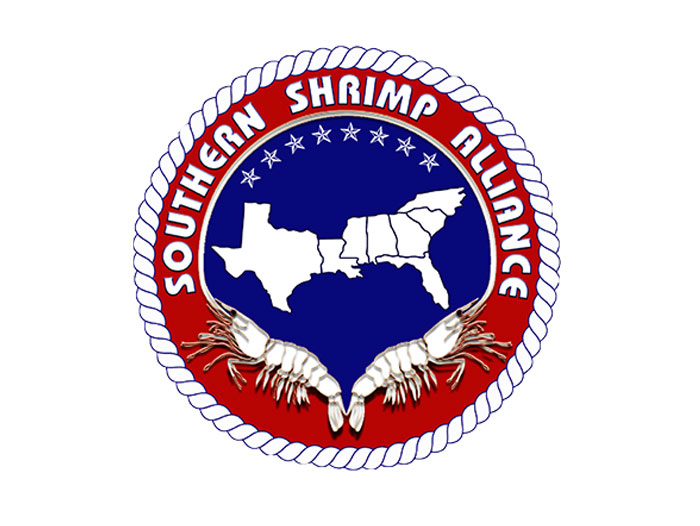Southern Shrimp Alliance Applauds Introduction of the Save Our Shrimpers Act
April 12, 2024 | 9 min to read
Representative Troy Nehls and 13 bipartisan co-sponsors introduced the Save Our Shrimpers Act, aiming to stop U.S. taxpayer funds from financing international shrimp farming and processing. This legislation follows concerns from the Southern Shrimp Alliance about overproduction harming U.S. shrimpers, leading to significant price drops and market saturation. Despite opposition, the International Finance Corporation approved a $20 million loan to an Ecuadorian shrimp firm, exacerbating competition for American producers.

Representative Troy Nehls (R-TX) and 13 bipartisan co-sponsors introduced the Save Our Shrimpers Act to prohibit U.S. taxpayer funds from being used by international financial institutions to finance any activity relating to shrimp farming, the processing of shrimp, or shrimp exports in a foreign country. It also mandates an investigation and annual report by the U.S. Government Accountability Office (GAO) on whether U.S. Executive Directors at the various international financial institutions have complied with their responsibility to oppose such financing.
The proposed legislation stems from concerns raised by the Southern Shrimp Alliance (SSA) last year in A Crisis of Our Own Making, a research report cataloging the role played by international financial institutions, like the World Bank, in the creation of excess shrimp aquaculture capacity. U.S. taxpayers help fund development programs through international financial institutions, including billions of dollars invested in foreign shrimp aquaculture.
Following the report, SSA requested that the U.S. Department of Treasury abide by federal law requirements, codified at 22 U.S.C. § 262h, and oppose any assistance from international financial institutions to foreign shrimp farming, processing, and exporting industries.
U.S. Shrimpers Harmed
Previous shrimp aquaculture projects funded by international financial institutions have substantially injured U.S. shrimpers in eight states by creating an excess in shrimp supply. A surplus of shrimp in world markets—the U.S. being one of the largest—has crashed prices received by U.S. shrimpers for their catch. Shrimp imports to the U.S. have lost $1.5 billion in value since 2021. Additional market manipulation threatens to destroy a hardworking U.S. industry that supports coastal communities along the Gulf of Mexico and the South Atlantic.
Ecuador’s Manipulated Surge
A review of international financial institution funding shows that support for the Ecuadorian shrimp industry has resulted in huge increases in the volume of Ecuadorian shrimp exported to the United States at declining prices.
Multilateral development banks have funded at least eight significant projects in Ecuador to increase shrimp production since 2012. These projects eventually resulted in a surge of Ecuadorian shrimp imports into the United States, with an increase of over 50 percent (90 million additional pounds) between 2019 and 2020, and another massive increase of 47 percent (125 million additional pounds) between 2020 and 2021. As the U.S. shrimp market hit a saturation point in 2022, U.S. import volumes of Ecuadorian shrimp continued to grow in 2023, even as the prices for these imports declined.
The massive influx in Ecuadorian shrimp – now the country’s second most important export to the United States behind petroleum – led SSA to oppose the Innovation and Development in Ecuador Act of 2023, H.R. 6414, which sought to extend free trade benefits to Ecuador.
Funding Continues Over Objections
Disregarding the harm overproduction of shrimp has caused producers around the world, the International Finance Corporation (IFC) announced in December an additional US$20 million loan to an Ecuadorian shrimp company, Omarsa S.A., to further boost shrimp production. The IFC callously heralded the development project while global shrimp prices continued to decline due to excessive supply.
Notably, the U.S. Executive Director objected to the IFC’s funding of Omarsa S.A., which SSA believes was the first time the United States formally opposed a proposed project to benefit a foreign shrimp industry. The U.S. rarely opposes international financial institution funding. Since 2004, the United States has only expressed opposition to 880 loans across 28,000 votes, equivalent to 3.1 percent of the proposals. Despite the rarity of U.S. opposition to international financial institution funding, the IFC went forward with the poorly conceived and ill-timed project.
“American shrimp boats aren’t tied up at the docks due to free market principles. Redirecting taxpayer dollars to fund our competition through multilateral banks is sinking our industry,” said John Williams, Executive Director of SSA. “We deeply appreciate the leadership of Representative Nehls and his staff, the bill’s co-leaders, and the supporting co-sponsors of the Save Our Shrimpers Act for demanding that federal funds no longer be used to injure American commercial fishermen.”
The appropriately named SOS Act is co-led by Representatives Mike Ezell (R-MS), Vicente Gonzalez (D-TX), Garret Graves (R-LA), Clay Higgins (R-LA), Nancy Mace (R-SC), Barry Moore (R-AL). They are joined by the following original cosponsors: Representatives Brian Babin (R-TX), Gus Bilirakis (R-FL), Byron Donalds (R-FL), Russell Fry (R-SC), Julia Letlow (R-LA), Anna Paulina Luna (R-FL) and, Randy Weber (R-TX).
Review the Save Our Shrimpers Act here: https://nehls.house.gov/sites/evo-subsites/nehls.house.gov/files/evo-media-document/Save%20Our%20Shrimpers%20%20SIGNED.pdf
View a larger version of the above chart here: https://shrimpalliance.com/wp-content/uploads/2024/04/Ecuador-Shrimp-Imports-and-Loan-Projects-1.pdf
Read A Crisis of Our Own Making: U.S.-Backed Development Funding of Foreign Shrimp Aquaculture Is Substantially Injuring the American Shrimp Industry (Aug. 2023) here: https://shrimpalliance.com/wp-content/uploads/2023/08/A-Crisis-of-Our-Own-Making-Aug-2023.pdf
Check the U.S. Department of Treasury’s reporting of the votes from U.S. Executive Directors regarding multilateral development bank loans since January 2004: https://home.treasury.gov/policy-issues/international/multilateral-development-banks/loan-review-votes
Read the International Finance Corporation’s (IFC) December 21, 2023 announcement regarding the IFC’s grant of a $20 million loan to Omarsa S.A. to “boost shrimp production” in Ecuador: https://pressroom.ifc.org/all/pages/PressDetail.aspx?ID=27958
Review the Southern Shrimp Alliance’s December 7, 2023 letter to the House Committee on Ways and Means regarding the Innovation and Development in Ecuador Act of 2023: https://shrimpalliance.com/document/letter-to-ways-means-re-hr-6414/
